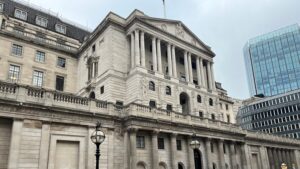This is up by a substantial 19% since September’s barometer.
Asia and GEM to benefit
While over half (55%) of financial advisers think their clients should increase their exposure to Asian equities ex Japan, up by 14%, they also cited their positive stance towards emerging market debt. More than a quarter (27.3%) said they believed their clients should increase exposure to the sector (up from 19% three months ago).
Financial advisers and investment professionals have become significantly more favourable towards emerging market and Asian ex Japan equities. Just under a third of respondents (32%) said they were now ‘very’ favourable towards emerging market equities (up by 7% from September’s barometer) while the corresponding figure for Asian ex Japan equities was also 32% (up by 5%).
The biggest shift in sentiment could be seen in emerging market debt (up by 12% on September’s barometer to 21%). This was followed by the natural resources/commodities asset class (up by 9% to 16%), European equities (up by 9% to 18%) and US equities (up by 8% to 31%).
In contrast, cash fell in popularity, with just one in ten financial advisers claiming they were ‘very’ favourable towards the asset class (down by 1%).
Aldridge says:
We have seen emerging market and Asian ex Japan equities remain robust in the face of extreme uncertainty. However, there is also a clear shift in sentiment towards emerging market debt and European and US equities, signalling greater interest from financial advisers in diversifying into more asset classes in the pursuit of growth and market opportunities.
Looking at other key sectors identified by the respondents, over a quarter (29%) of financial advisers are now ‘very’ favourable to UK equities (up by 6% from September’s barometer). Notwithstanding this more optimistic outlook, they are also concerned about UK economic growth: almost a third (31%) rate stagnant or negative UK GDP as the biggest macroeconomic challenge to investment growth in the next six months.
We have become more positive on riskier asset classes following recent European and US policy announcements that signalled a more determined and radical stance being taken by central banks. Over the short term, government bonds still look well underpinned by QE measures implemented by global central banks but we continue to find investment potential elsewhere in fixed income, particularly in corporate bonds where valuations continue to price in very pessimistic assumptions about corporate default rates.








